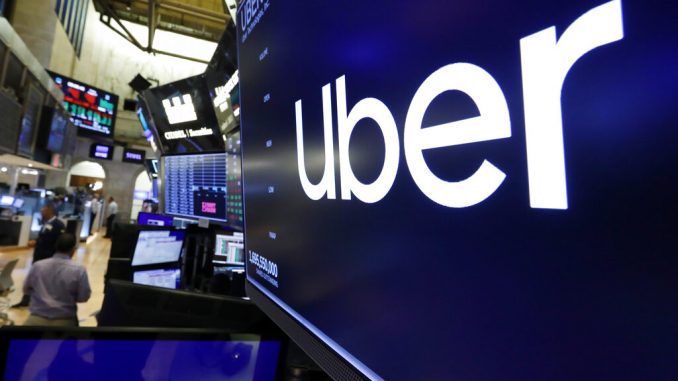
NEW YORK — Uber lost $1.78 billion in the second quarter as the pandemic carved a gaping hole in its ride-hailing business, with millions of people staying home to reduce the spread of the coronavirus.
Its food delivery business grew as more people ordered in, but that booming part of its business didn’t turn a profit.
The San Francisco-based ride-hailing giant brought in $2.24 billion in revenue during the second quarter, down 27% from the same time last year, on a constant currency basis, the company said Thursday.
Uber’s mobility business, which includes ride-hailing and micro-mobility options such as scooters and bikes, saw its revenue shrink to $790 million, down 67% from $2.38 billion a year ago.
“While we would have all hoped that by now we had a clear line of sight to the end of the pandemic, hope is not a strategy and it’s my job to ensure that Uber is well prepared for any scenario,” CEO Dara Khosrowshahi said in a conference call with investors Thursday.
Uber’s Eats delivery business — once just a fraction of the company — brought in $1.21 billion in revenue during the quarter. That was up 103% from $595 million in last year’s second quarter.
As some people stay closer to home, more people are ordering from Uber Eats than ever before, Khosrowshahi said.
“The COVID crisis has moved delivery from a luxury to a utility,” he added.
Gross bookings for Uber’s mobility business plummeted 73% from the same quarter last year. Its delivery business grew 113% on a constant currency basis, but did not turn a profit, instead losing about $232 million during the quarter.
Uber’s quarterly losses included $382 million in restructuring and related charges as the company laid off 6,700 people — a quarter of its workforce — in May. Uber said at the time that it would be closing or consolidating 45 offices worldwide.
Its revenue fell in the U.S. and in across the world except in the Asia-Pacific region.
Uber said it still expects to become profitable sometime in 2021.
In addition to struggling with reduced demand for rides during the pandemic, Uber has been hit with lawsuits challenging the way it treats its drivers. California’s Labor Commissioner Lilia Garcia-Brower filed complaints against Uber and Lyft Wednesday saying the companies committed wage theft by misclassifying employees as independent contractors. The suit seeks to recover civil penalties and unpaid overtime and minimum wage.
“This was important not only for the workers, but also for responsible employers who are undercut when companies do not pay their fair share on taxes, worker’s comp, and wages,” Garcia-Brower said in an interview. “During this time of the pandemic, it has highlighted the damage that misclassification does to our safety net.”

